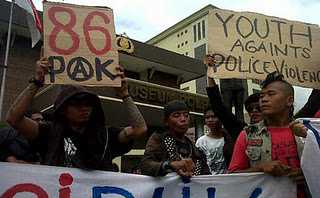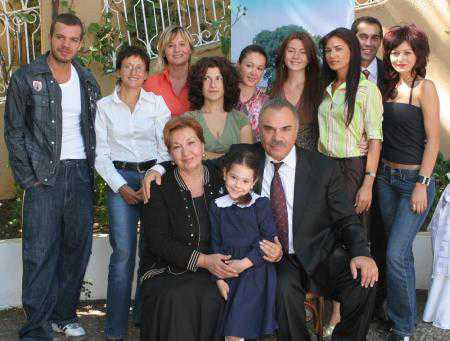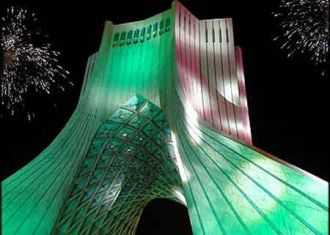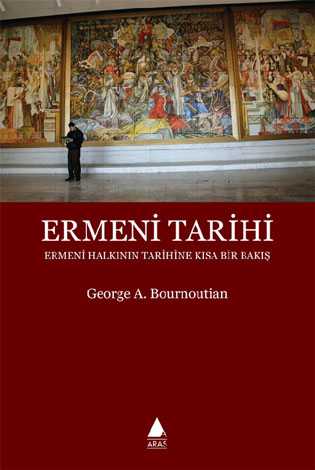By Fulya Ozerkan (AFP) – 1 day ago
ANKARA — Unbeknownst to many, Turkish diplomats on duty around Europe saved hundreds of Jews during World War II by giving them Turkish passports, enabling them to travel to safety in Turkey.
This little known episode is told in an independent documentary entitled “Turkish Passport”, being promoted as finally revealing “a secret kept for 66 years”.
The film recounts memories known mainly to 19 diplomats and the Jews they saved from German Nazi death camps. It is based on testimonies by witnesses and their relatives.
“To remember and never to forget,” said Gunes Celikcan, 30, one of the producers, as he talked about why the film was made.
“There is not much about what the Turks did during that period of history,” Celikcan told AFP, as Turkey remained neutral during World War II.
He said the diplomats saved around 2,000 Jews from the Holocaust but the exact figure is unknown.
“We wanted to show this for the very first time and commemorate those diplomats,” none of whom survive today, he said.
The docudrama directed by Burak Arliel was first shown at the Cannes Film Festival in May. It has since been screened in Istanbul and other Turkish cities and made the rounds of festivals in the US and Europe.
And though the buzz is quiet, it’s building — and not all is favourable.
Its release comes at a low-point in relations between Israel and Turkey, after Israel’s refusal to apologise for a deadly commando raid on a humanitarian flotilla bound for the Israeli-blockaded Gaza Strip. The incident left nine Turkish nationals dead on May 31, 2010.
In protest, Turkey expelled the Israeli ambassador and froze military ties and defence trade deals.
The Palestinians have widespread support in Turkey, where a wildly popular Turkish film series, “Valley of the Wolves”, has fuelled strains, blasted by Israel as having anti-Semitic content.
Celikcan said the film has been six years in the making and “has nothing to do with the changing political spectrum”.
But not all agree, including the chief political analyst for The Jerusalem Post, Gil Hoffman, and former Israeli cultural attache in Turkey Batya Keinan.
In a recent article reprinted in several Turkish newspapers and websites, Hoffman said the movie was “rewriting history” with one of its “central messages — that the Turkish government was actively involved in saving Jewish lives in Europe.”
This “does not appear to be the case”, he wrote. “Historical records indicate that the diplomats acted on their own, despite orders to the contrary from Ankara.”
Hoffman also quoted Keinan. “The Turkish press office is using the movie for propaganda,” she said. “They are trying to say ‘we are good people who protected Jews in the Holocaust and Palestinians now, and yet you shoot at us.’ Shame on you.”
The comments have angered the movie’s backers.
“This film is not propaganda. … There is no state involvement,” said Asli Sena Genc, a representative for the Istanbul promoters. “This is a historical fact.”
Celikcan said the Turkish foreign ministry gave the filmmakers access to official archives, but ministry officials told AFP the film was a private initiative and the ministry made no official contribution.
The docudrama recounts how the diplomats, including ambassador to Vichy France Saffet Arikan, found a way out for Turkish and foreign Jews, sending them to Istanbul on 12 trains at different points during the war.
Behic Erkin, Turkey’s ambassador to Paris from 1940-43, and Kudret Erbey, consul-general in the German city of Hamburg from 1940-45, were also involved.
“Turkish diplomats did their best to save Jews amid the raging brutality against Jews during World War II,” said Naim Guleryuz, a historian and consultant on the film who heads a Turkish foundation that promotes the history and culture of Turkish Jews.
“This part of the story is actually known by historians but we wanted to make it public knowledge through this documentary,” he said.
Researchers went to the United States, Israel, France and Germany, tracking down survivors or their relatives, some of whose tales are told on the film’s official website.
In one, Arlette Bules recalls when her father was arrested by the Germans and sent to the internment camp of Drancy, outside Paris.
“My mother immediately went to the Turkish Embassy and asked for help rescuing my father. Thanks to the letters written by the ambassador, my father was rescued,” she said.
Celikcan recalls another testimony about a Jewish father who called his two daughters to his deathbed after the war. “He told them ‘never forget that it was the Turks who saved us’ and then died making a military salute.”
“We did this film without any expectation,” Genc told AFP. “We only wanted to reveal a secret which has been kept for so many years.”
Celikcan was philosophical. “If this film makes a positive impact to mend fences between the two countries, we should only be happy for that” — a view also held by Israeli diplomat Keinan, who has worked for recognition in Israel of these Turkish diplomats’ wartime role.
“Even though there are problems with the ‘Turkish Passport’, the aggressive promotion of the movie could end up helping the current efforts to improve ties between Israel and Turkey,” she said in The Jerusalem Post.
via AFP: Film shows how Turkish passports saved Jews.





